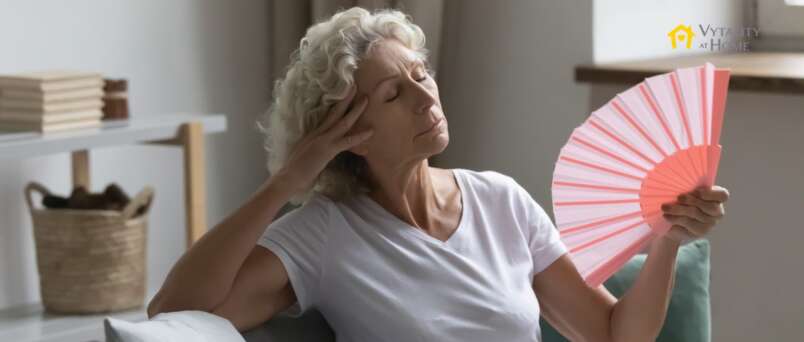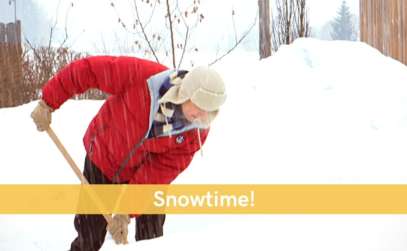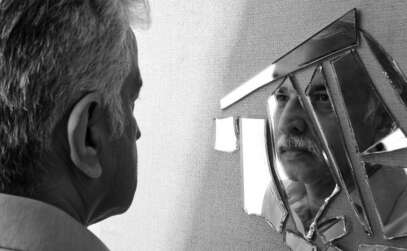Keeping your cool: how to help seniors beat the summer heat in Calgary (2024 edition)
It might not feel so hot at the moment (a high of just 21 degrees at time of writing), but the statistics show that two of the hottest years on record in Calgary have been in the last 8 years. Temperatures have risen to 36 degrees C or more in the following years since records began:
1914, 1919, 1933, 1936, 1984, 2018, 2021
Keeping cool for seniors is going to be of ongoing importance in the years ahead. If your elderly parents or senior relatives were suffering in the high temperatures last year (reaching highs of 35 degrees), then now is the time to look at how they could future-proof their homes or lifestyles.
How’s your HVAC?
Your aging parents or senior loved ones may have had the same HVAC (Heating, Ventilation, and Air Conditioning) systems in their home for a considerable time. It may be outdated, not energy efficient, tricky to use, and not environmentally-friendly either! They may struggle with controlling the system too, manually adjusting old style thermostats, or using various hand held air con remotes that get easily lost or mislaid.
Booking a HVAC service / inspection now, before the heat really sets in, could be both practical and reassuring for you and your senior relatives. It might also pave the way to suggesting replacing the system in time for the winter!
You can also look at ways you might help, even with the simplest of skillsets. It may be as easy as putting up new shades or curtains, replacing a broken screen door, or unsticking ‘stuck’ windows to improve air flow through the home.
You should also check if there is easy (preferably level) access to cool, shady areas in the garden, and that any outdoor seating is available (and safe!) in these spaces.
Why seniors suffer in the heat
As we age, our bodies don’t adjust as quickly or as easily to sudden changes in temperature. That’s why people over the age of 65 are much more prone to feeling the heat (heat stress) than younger people. Equally, seniors might be taking medications that affect the body’s responses to heat and temperature regulation (https://caregiver.com/articles/heat-stress-elderly/).
Seniors are particularly at risk if they:
- Are alcohol dependent
- Are either obese or very underweight
- Have a heart condition
- Live with kidney conditions treated with diuretic drugs
- Are taking sedatives
Heat-related conditions to look out for
All heat-related conditions come under the category of hyperthermia. Extreme heat can trigger two potentially serious illnesses:
- Heat stroke
- Heat exhaustion
Heat stroke
Heat stroke is the more serious, when the body loses its ability to regulate temperature. As a result:
- Body temperature rises quickly
- The person cannot sweat properly
- The body is unable to cool down
- Body temperature can rise to 106F or more within a few minutes
Symptoms of heat stroke include:
- High body temperature
- Dry skin (not sweating)
- Rapid pulse
- Throbbing headache
- Nausea
- Dizziness and/or fainting
- Changes in behaviour including; confusion, agitation, disorientation, bad temper, or acting out of character
Anyone with heat stroke must receive emergency treatment as soon as possible.
Heat exhaustion
Heat exhaustion is severe tiredness resulting from sustained exposure to excessive heat. Heat exhaustion builds over time during high temperatures and often as a result of not hydrating properly. This is why seniors and the elderly are particularly vulnerable, as they often do not drink enough fluids.
Heat exhaustion symptoms include:
- Heavy sweating
- Pale and moist skin
- Cramps in muscles
- Dizziness and weakness
- Headache
- Fainting
- Fast, shallow breathing
When moved into the cool and given a drink, seniors with heat exhaustion should being to feel better within 30 minutes. If symptoms persist for longer, call your physician for medical advice or seek assistance. Heat exhaustion can develop into heat stroke if no action is taken. (https://www.ageuk.org.uk/information-advice/health-wellbeing/mind-body/staying-cool-in-a-heatwave/)
Three other hyperthermia conditions
Heat syncope
Heat syncope is a sudden dizzy spell that happens if you are active in the heat. If you feel dizzy in the heat:
- Find a cool place to rest
- Put your legs up
- Drink cool water
Those taking beta blocker medications are more at risk.
Heat cramps
Often caused by manual work or exercise, heat cramps cause painful muscle tensioning in your arms, legs and stomach. Again,
- Find a cool place to rest and cool down
- Drink plenty of water
Heat edema
Heat edema causes your ankles and feet to swell in the heat. If your legs swell:
- Sit in a cool place
- Put your legs up
- Consult your physician if the swelling doesn’t reduce
How to help seniors avoid heat stress
If you can, visit your senior relatives twice a day during heatwaves, and as the CDC advises, ask yourself these questions:
- Are they drinking enough water?
- Do they have access to air conditioning?
- Do they know how to keep cool?
- Do they show any signs of heat stress?
Helping seniors stay cool at home
Seniors at home should keep out of the sun, and rest in a cool part of their home during the heat of the day. Help your senior relatives by identifying and improving access to cool places both inside and out.
If they have air conditioning, turn it on and say you’ll help with the cost of running it! Some seniors may view air con as “expensive’ and might limit its use. Remind them that’s what it’s there for! If you can hire a portable air conditioning unit, or buy extra fans, these will also help. Check the HVAC system as described above.
Hose down any outside areas with water or set the sprinklers going as close to the house as possible. This helps keep the surrounding air mass cooler, so if they open the windows, they get a cooler breeze through their home. It doesn’t last for long, but it does help keep their home cooler during the day overall. (That’s why a lot of Middle Eastern gardens and Mediterranean villas have water features, to keep them cooler in the summer months.)
Encourage ageing relatives to drink cool (not cold) non-alcoholic drinks, and to drink as often as they can. Tea and coffee will heat them up and act as a diuretic, causing them to urinate more often and lose more fluids. If they need to limit their fluid intake on medical grounds, they should consult their physician to find out how much fluid they can drink when it’s hot.
Take a trip to an air-conditioned mall and perhaps pick out some new, lightweight clothing, stock up on sunscreen, or a smart new sunhat.
Remind them that doing some gardening or their usual round of golf can wait until it’s a bit cooler!
Not able to check on senior parents or relatives?
Our caregivers can! As part of our Calgary home care service, we can visit your relatives and check how they are coping with the heat. While we’re there, we can help with household chores such as laundry and light cleaning, opening or closing shades and curtains to keep out strong sunlight, or just sit and discuss the latest news and weather reports!
We can remind them to drink, to eat and take their medications, and ensure they have a jug of water at their side rather than having to go to the kitchen every time they want a drink.
As part of our personal care service, our friendly caregivers can help them wash, shower or bathe to help them feel cooler and more comfortable too.
Contact us to discuss your requirements:




